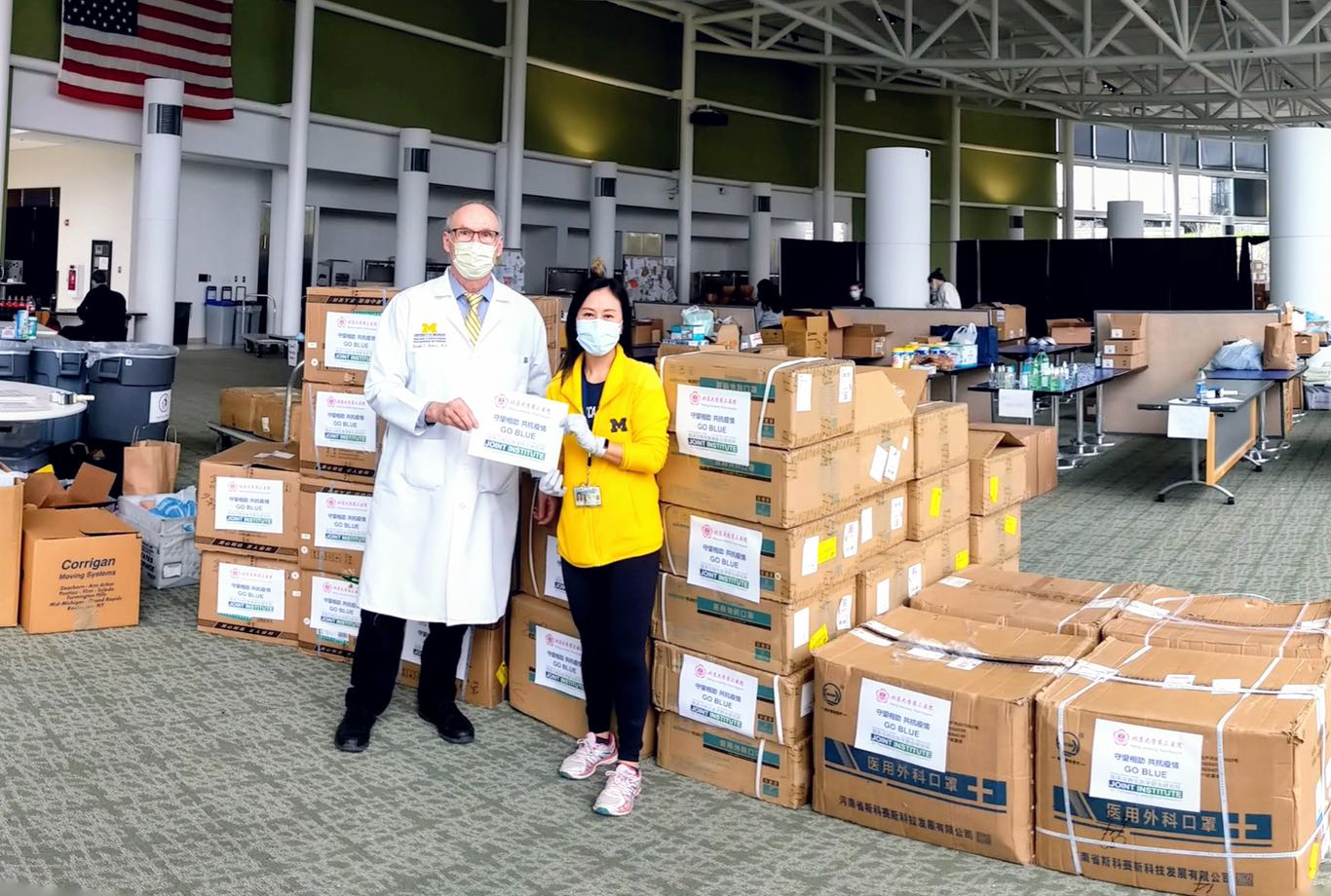
The gear – tens of thousands of items including masks, coveralls, and goggles – comes from several Beijing hospitals affiliated with Peking University Health Science Center (PKUHSC), Michigan Medicine’s partner institution in the Joint Institute (JI) for Translational and Clinical Research. JI Co-Director Joseph Kolars, U-M medical school Senior Associate Dean for Education and Global Initiatives, and Amy Huang, Global REACH Director for Asia Programs and Michigan Medicine JI administrative lead, were on hand this week to receive the donation at the U-M North Campus Research Complex.
“We are so grateful to our PKUHSC colleagues for their friendship and generosity,” said Kolars. “These supplies are badly needed and especially difficult to source. On behalf of all of our front-line workers, I want to thank our collaborators in China. Their donation will help keep our care teams safe in the coming days and weeks.”
The bulk of the items, including 60,000 surgical masks and nearly 5,000 N95 masks, came from Peking University Third Hospital. Other gear came from the Peking University First, Second, and Dental hospitals.
The COVID-19 pandemic has increased demand for PPE supplies even as it has disrupted global supply chains. PKUHSC Executive Vice President and Third Hospital President Jie Qiao, a Professor of Ob-Gyn and an active JI researcher, reached out to Michigan Medicine leaders to arrange the PPE donation through her hospital’s suppliers. As with all of the PPE Michigan Medicine has collected through donations, supply chain team members are checking that the items donated are comparable to those products regularly used at the hospital and thus appropriate for use.
“The Chinese market can be difficult to navigate. Our colleagues at PKUHSC are familiar with the suppliers and know which ones offer top quality. These items are from the same suppliers PKUHSC uses in their hospitals,” said Huang.
The Michigan Medicine-PKUHSC Joint Institute was established in 2010 to connect top researchers from both institutions to collaborate on joint research to benefit both countries’ patient populations. To date, JI researchers have launched 60 such projects. The partnership has helped U-M researchers land more than $24 million in extramural funding.
But beyond the research, the partnership has produced benefits in the coronavirus era. As COVID-19 began to spread across the US, PKUHSC leaders and faculty engaged in the JI reached out their Michigan Medicine counterparts to offer their own perspectives on treating COVID-19 patients in both Beijing and Wuhan. More than 40 people from Ann Arbor, Beijing and Wuhan participated in a March 26 videoconference to discuss the best-practices and lessons learned from China.
“It speaks volumes about the value of our international collaboration and the strong relationship we’ve cultivated through the JI over the past decade,” Kolars said. “In first sharing their expertise and now sharing their much-needed supplies, our friends at PKUHSC have been there for us when we need it most.”
